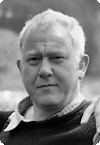Speakers
- Charlotte Baker, Lecturer in French, DELC
- Mercedes Camino, Professor, History
- Sondra Cuban, Lecturer, Educational Research
- Corinne Fowler, Lecturer in 20th Century Postcolonial Literature, Leicester University
- Lynne Pearce, Professor of Literary Theory and Women’s Writing, Department of English & Creative Writing
- Emma Rose, Professor of Contemporary Art, LICA
- Cami Rowe, PhD student working on the Collaging IR project
- Christine Sylvester, Professor of International Relations and Development, Politics Dept.
- Harry Whitehead, Lecturer in Creative Writing, Leicester University
- Ruth Wodak, Distinguished Professor of Discourse Studies, Linguistics
FASS Funding
![]() We are grateful to the Lancaster University Faculty of Arts and Social Sciences for providing us with funding for Creative-critical Synergies, a part of the Trans-Scriptions series of events, 2006-present.
We are grateful to the Lancaster University Faculty of Arts and Social Sciences for providing us with funding for Creative-critical Synergies, a part of the Trans-Scriptions series of events, 2006-present.
Creative-critical Synergies
CTWR research event

Creative-critical Synergies, which took place on the 27th of February, 2009, was the first of three seminars for which we had ‘Research Centre Seminar Series’ funding. Our aim was to initiate cross-disciplinary exchanges by having members of the Centre (and other interested members of FASS) give presentations on different forms of research (theory-based, practice-based), methodological approaches and thematic focuses.
At the event, there were ten speakers from six different departments, and a wide-ranging discussion took place, considering possible avenues of collaborative research amongst Centre members.
Introductory Message from Graham Mort
We’ve built an extensive website featuring a number of research projects and a membership throughout FASS that shows overlapping research interests. Our concept of a research community has always included students working at PhD level, as well as members of staff. Our intention now is to bring together members of that community in regular events that will inform and stimulate, whilst at the same time acknowledging and extending who we are. This is the first such event and therefore of particular significance.
A Centre is defined by its members and their activities more accurately than by its rhetoric. It’s good to see an event take shape with such strong transcultural implications and potential. Cultural complexity – both in the actual focus of research, and in the sense that interdisciplinary itself equates to a form of polyculture within academia – is strongly reflected in today’s programme. A sense of exploration is inherent in a range of exciting and committed research that is truly interdisciplinary – particularly in its synthesis of practice-based and theoretical methodologies and outputs.
We hope that new alloys – stirred by the metallurgy of events like the one you are attending and contributing to – will continue to define and bear the hallmark of our Centre.
